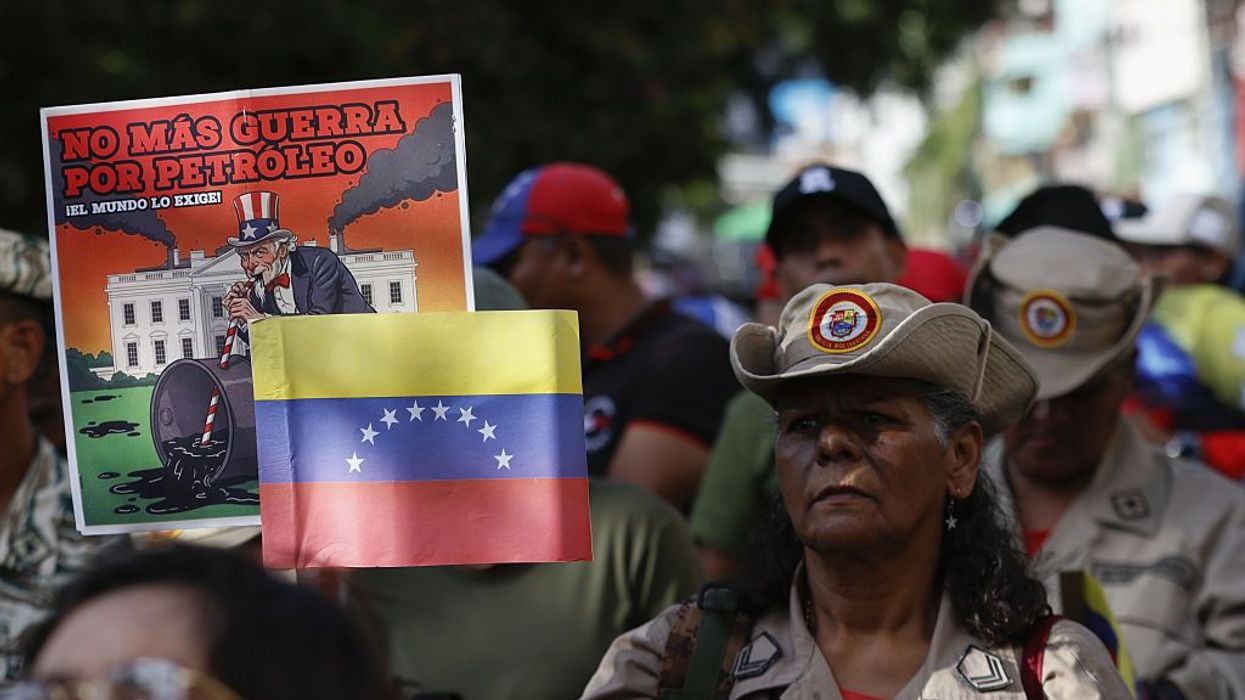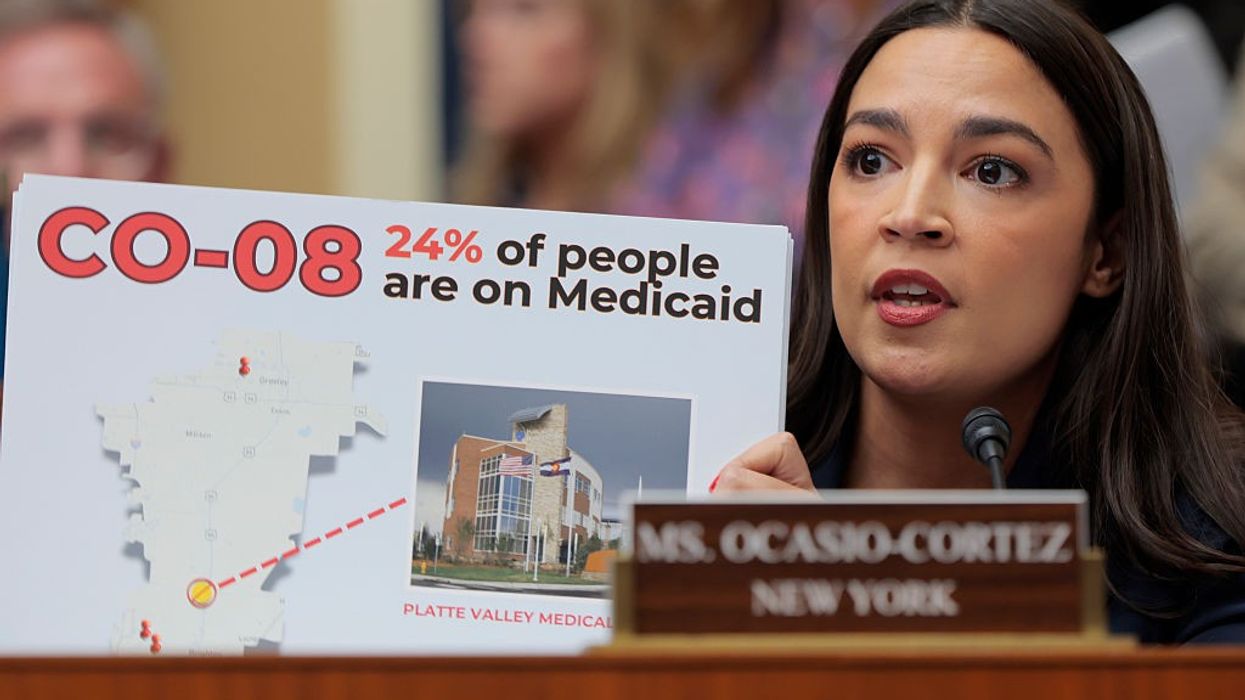November, 30 2010, 08:10am EDT
For Immediate Release
Contact:
Alicia Pierro, Outreach & Advocacy Officer, USCBL,
Phone: +1 (347) 623-2779,
E-mail:
apierro@handicap‑
Zach Hudson, Coordinator, USCBL,
Phone: +1 (917) 860-1883,
E-mail:
zhudson@handicap‑
Nobel Peace Laureates Urge President Obama to Join the Mine Ban Treaty Without Delay
WASHINGTON
Fifteen past recipients of the Nobel Peace Prize delivered a letter to fellow Nobel Laureate President Obama Tuesday urging the U.S. to relinquish antipersonnel landmines and join the 1997 Mine Ban Treaty without delay.
"As this letter demonstrates once again, the world is calling on the U.S. to join the Mine Ban Treaty," said Zach Hudson, the coordinator of the U.S. Campaign to Ban Landmines (USCBL). "Over the past year, the administration has received letters of support for the Mine Ban Treaty from 68 Senators, countless NGO leaders, key NATO allies, and citizens from around the world. Now 15 Peace Prize recipients are writing their fellow Laureate to ask him to complete the review and join the treaty. It's time to get on board."
In the letter, the Laureates emphasize that "United States accession to this important instrument would bring great benefits to the U.S. and the world. It would strengthen U.S. national security, international security, and international humanitarian law. It would help strengthen the fundamental goal of preventing innumerable civilians from falling victim to these indiscriminate weapons in the future, and help ensure adequate care for the hundreds of thousands of existing survivors and their communities. U.S. membership would help spur to action the 39 states that remain outside the treaty."
The letter was coordinated by Jody Williams, an American who was awarded the prize along with the International Campaign to Ban Landmines (ICBL) largely for their role in bringing about the Mine Ban Treaty. A total of fifteen individual Nobel Peace Laureates signed the letter to President Obama: Mairead Maguire and Betty Williams (1976), Adolfo Perez Esquivel (1980), Archbishop Desmond Tutu (1984), Elie Wiesel (1986), Oscar Arias Sanchez (1987), His Holiness Dalai Lama (1989), Rigoberta Menchu Tum (1992), F.W. De Klerk (1993), Jose Ramos-Horta (1996), Jody Williams (1997), John Hume (1998), Shirin Ebadi (2003), Wangari Maathai (2004), and Mohamed El Baradei (2005).
"We hope that President Obama, as a fellow Nobel Peace Laureate, will listen to our call to ban landmines and ensure the US takes the necessary steps to accede to the Mine Ban Treaty," said Jody Williams, now ICBL ambassador and chair of the Nobel Women's Initiative. "Anything less than a total ban on antipersonnel landmines would be a half-measure, falling short of the US leadership that is needed."
The letter was delivered during the Tenth Meeting of States Parties to the Mine Ban Treaty in Geneva which opened on November 29. This conference takes place one year after the Mine Ban Treaty's Second Review Conference during which the U.S. delegation announced that the Obama administration would begin a formal review of U.S. landmine policy. The Nobel letter expresses hope that the landmine review, which is still underway, "will be guided by the humanitarian concerns that have already led 156 nations to ban the weapon, including nearly all U.S. military allies."
The United States began a comprehensive landmine policy review in late 2009 at the direction of President Obama. The U.S. has not used antipersonnel mines since 1991 (in the first Gulf War), has not exported them since 1992, has not produced them since 1997 and is the biggest donor to mine clearance programs around the world. However, it still retains millions of stockpiled antipersonnel mines for potential future use and has not yet joined the 1997 Mine Ban Treaty.
Several Nobel Peace laureates have long expressed concern at the humanitarian impact of antipersonnel mines and have worked for their eradication:
*The NGO founded by Adolfo Perez Esquivel (1980), Servicio Paz y Justicia (SERPAJ), has worked to ensure that the Mine Ban Treaty is ratified and implemented throughout Latin America.
*Archbishop Desmond Tutu (1984) publicly endorsed the call for a ban on antipersonnel mines in March 1995, when he was president of the All Africa Conference of Churches. Tutu opened a regional conference on landmines held in South Africa in May 1997 that proved instrumental in building African-wide support for the creation of a strong treaty to ban antipersonnel mines.
*His Holiness Dalai Lama (1989) endorsed the call for a total ban on landmines in 1995 at the urging of the Supreme Patriarch of Cambodian Buddhism, Maha Ghosananda, and Cambodian landmine survivors.
*Rigoberta Menchu Tum (1992), Betty Williams and Mairead Maguire (1976), and the three other founders (Williams, Ebadi, and Maathai) of the Nobel Women's Initiative, established in 2004, have actively supported the International Campaign to Ban Landmines. Activities have included statements to annual meetings of the Mine Ban Treaty, media work, and outreach to governments that have not yet joined.
*Jose Ramos-Horta (1996) spoke out against landmines and other weapons designed to inflict pain and death in his Nobel Peace Prize acceptance speech. When he became the Timor-Leste's first Minister of Foreign Affairs, the government acceded to the Mine Ban Treaty, making it the first disarmament treaty that the new country joined after independence.
*Jody Williams (1997) was jointly awarded the Nobel Peace Prize in recognition of her leadership role as founding coordinator of the International Campaign to Ban Landmines (ICBL). Williams spearheaded the civil society-based campaign that cooperated with a group of small and medium-sized countries through the "Ottawa Process" to create the 1997 Mine Ban Treaty.
*Shirin Ebadi (2003) launched the "Mine Clearing Collaboration Campaign" in 2004 to demand that Iran take greater action to clear mines laid during the Iran-Iraq war, assist mine victims, and join the Mine Ban Treaty.
*Wangari Maathai (2004) participated in several events at the First Review Conference of the Mine Ban Treaty, held in Nairobi, Kenya in November-December 2004.
The United States Campaign to Ban Landmines is a coalition of non-governmental organizations working to ensure that the U.S. comprehensively prohibits antipersonnel mines--by banning their use in Korea--and joins the 1997 Mine Ban Treaty, as more than 160 nations have done. It is the national affiliate of the International Campaign to Ban Landmines (ICBL), founded in New York in 1992 and recipient of the 1997 Nobel Peace Prize Laureate together with former ICBL coordinator Ms. Jody Williams of Vermont. We also call for sustained U.S. government financial support for mine clearance and victim assistance.
LATEST NEWS
63% of US Voters Oppose Attack on Venezuela as Trump's March to War Accelerates
The new poll comes as the US president openly plots to seize Venezuela’s oil supply.
Dec 18, 2025
President Donald Trump has taken increasingly aggressive actions against Venezuela in recent weeks, but a new poll released Wednesday shows US voters are not on board with a new war.
A new poll from Quinnipiac University found that 63% of voters oppose military operations inside Venezuela, with just 25% registering support.
What's more, a US military strike in Venezuela would draw significant opposition even from Republican voters, 33% of whom told Quinnipiac that they would oppose such an action. Eighty-nine percent of Democratic voters and 68% of independent voters said they were opposed to a US military campaign in Venezuela.
Trump's policy of bombing suspected drug trafficking boats in international waters, which many legal experts consider to be acts of murder, drew significantly less opposition in the new survey than a prospective attack on Venezuela, but it is still unpopular, with 42% in favor and 53% opposed.
A potential war is also unpopular with Venezuelans, as a recent survey from Caracas-based pollster Datanalisis found 55% opposed to a foreign military attack on their nation, with 23% in favor.
The Trump administration's boat strikes, which have now killed at least 99 people, have been just one aspect of its campaign of military aggression against Venezuela. The US military last week seized a Venezuelan oil tanker, and Trump has said that it's only a matter of time before the military launches strikes against targets inside the country.
Trump on Wednesday also said that one goal of his campaign against Venezuela would be to seize the country's oil supply.
“Getting land, oil rights, whatever we had—they took it away because we had a president that maybe wasn’t watching,” Trump said while talking to reporters. “But they’re not gonna do that. We want it back. They took our oil rights. We had a lot of oil there. They threw our companies out. And we want it back."
Venezuela first nationalized its oil industry in 1976, and the US has no legitimate claim to the nation's petroleum supply.
Keep ReadingShow Less
AOC Dismisses Premature 2028 Polls, But Says ‘I Would Stomp’ JD Vance
A survey this week showed the congresswoman leading the vice president 51-49 in a hypothetical presidential matchup.
Dec 18, 2025
Rep. Alexandria Ocasio-Cortez gave a cheeky reaction after a poll suggested that she'd slightly edge out Vice President JD Vance in a hypothetical presidential election in 2028.
The survey of over 1,500 registered voters, published Wednesday by The Argument/Verasight, showed Ocasio-Cortez (D-NY) leading Vance 51-49 and winning back several key voting demographics that propelled Trump's return to the White House last year.
As she walked out of the Capitol building Wednesday evening, the Bronx congresswoman was asked about the poll by Pablo Manríquez, the editor of Migrant Insider.
She responded to the question with a laugh: "These polls three years out, they are what they are. But, let the record show I would stomp him! I would stomp him!" she said before getting into her car.
Neither Ocasio-Cortez nor Vance has officially announced a presidential run. But Vance is considered by many to be a natural successor to President Donald Trump. The president and his allies have suggested he could run for an unconstitutional third term.
Ocasio-Cortez, meanwhile, is reportedly mulling either a presidential run or a bid to take down the increasingly unpopular Senate Minority Leader Chuck Schumer (D-NY).
More than two years out from a Democratic primary, Ocasio-Cortez is considered a likely choice to fill the progressive lane in 2028, with support for increasingly popular, affordability-focused policies, including Medicare for All.
However, despite her strong support among young voters, early polls show her behind California Gov. Gavin Newsom and former Vice President Kamala Harris for the Democratic nomination.
Wednesday's poll showed that in a hypothetical contest against Vance, Newsom had a 53% to 47% edge, a margin only slightly larger than Ocasio-Cortez's.
Keep ReadingShow Less
4 More Killed in Pacific Boat Strike as White House Ramps Up Demands for Venezuelan Oil
President Donald Trump “wants to keep on blowing boats up until Venezuelan President Nicolás Maduro cries uncle," said White House Chief of Staff Susie Wiles in a recent interview.
Dec 18, 2025
Hours after US House Republicans voted down a war powers resolution Wednesday aimed stopping the Trump administration from continuing its attacks on "presidentially designated" terrorist organizations, the death toll of the Pentagon's continued boat strikes was brought to 99 with the latest bombing in the Pacific Ocean.
US Southern Command reported Wednesday night that at the direction of Secretary of Defense Pete Hegseth, the military had killed four people in a "kinetic strike on a vessel operated by a Designated Terrorist Organization in international waters."
As with the rest of the more than two dozen bombings that the administration has carried out in the Caribbean and Pacific since September, the Pentagon said that intelligence had confirmed the boat was "engaged in narco-trafficking operations."
The White House has not released evidence that the boats it's targeted were carrying drugs. In the past, the US military has been involved in intercepting vessels suspected of drug trafficking and charging passengers with a criminal offense, but President Donald Trump has insisted the US is engaged in an armed conflict with drug cartels in the Western Hemisphere, including in Venezuela.
US and international intelligence agencies have not found Venezuela to be a significant source of drugs flowing into the US and have found the country to play virtually no role in the trafficking of fentanyl, the biggest cause of drug overdoses in the US.
The latest boat bombing came a day after Trump announced a "total and complete blockade" on oil tankers approaching and leaving Venezuela, accusing the country of stealing "Oil, Land, and other Assets" from the US.
Venezuela nationalized its petroleum sector in 1976, taking control of its own vast oil reserves. Previously, US-based companies had largely controlled the country's oil industry. In 2007, then-President Hugo Chavez further pushed out US oil giants such as Exxon Mobil when he nationalized foreign oil projects in Venezuela.
Stephen Miller, a top adviser to Trump, accused Venezuela's government of "theft" on Wednesday.
“American sweat, ingenuity, and toil created the oil industry in Venezuela,” Miller said in a social media post. “Its tyrannical expropriation was the largest recorded theft of American wealth and property. These pillaged assets were then used to fund terrorism and flood our streets with killers, mercenaries, and drugs.”
Regarding the blockade, Trump also said Wednesday that Venezuela "illegally took" US energy rights.
While the administration has insisted for months that its deadly boat strikes are aimed at stopping drug trafficking, comments from White House Chief of Staff Susie Wiles in an extensive Vanity Fair interview released Tuesday further confirmed that the White House aims to take control of the South American country.
Trump “wants to keep on blowing boats up until Venezuelan President Nicolás Maduro cries uncle," said Wiles.
Brian Finucane, senior adviser at the International Crisis Group, said Wednesday night's boat strike amounted to "more premeditated killing outside of armed conflict."
"There's a word for that," he said.
Legal experts have said the repeated, lethal bombings of boats have been part of a campaign of extrajudicial killings and have warned Hegseth and others involved in the attacks could be liable for murder.
Keep ReadingShow Less
Most Popular


